People expend so much energy trying to shore up their weaknesses when they really should be playing to their strengths. It seems like a basic statement, but it’s what makes the difference between people that spin their wheels and people that excel in their endeavors. My guest today, Justin Breen, definitely falls into the second category! Justin is the author of the best-selling book, Epic Business: 30 Secrets to Build Your Business Exponentially and Give You the Freedom to Live the Life You Want! He has a global network of exceptional entrepreneurs and is an extremely active member of Strategic Coach, Entrepreneurs’ Organization, and Abundance 360.
In this episode, we talk about Justin’s secrets for creating successful businesses, and how he took a simple concept and founded his premium PR firm BrEpic. We also talk about the powerful forces podcasts can become for results leaders, and the lessons Justin has learned from Dan Sullivan, founder of Strategic Coach that have helped guide his success. Among other pearls we have both gleaned from Dan: entrepreneurs’ number one job is to protect their confidence. Justin is really motivational and insightful, so for an in-depth discussion on leaning into your strengths and so much more, on with the show!
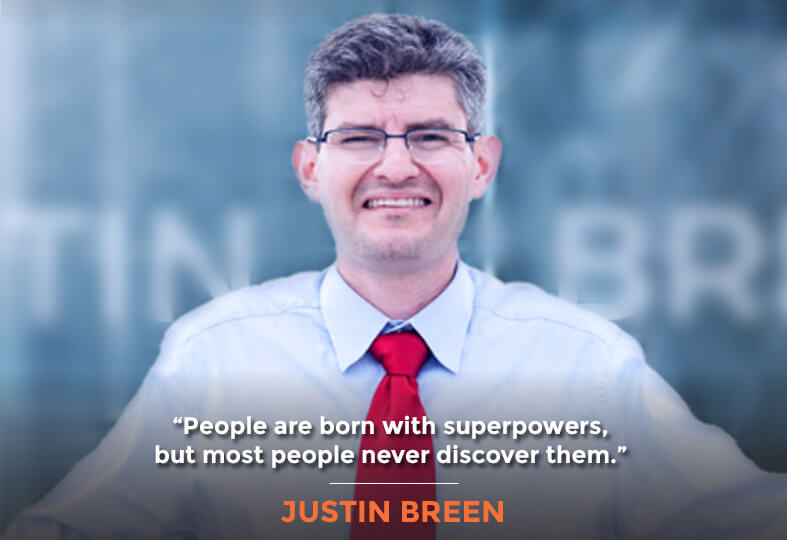
In this Episode
- [00:30] – Stephan introduces Justin Breen, Founder, and CEO of BrEpic and the author of the No. 1 International Best Selling Book, Epic Business. He’s all about highlighting your strengths to become the success you were destined to be.
- [05:14] – Justin talks about Gino Wickman and how he is looking for an Integrator for his company since he does not consider himself manager material.
- [11:03] – What are some mistakes PR firms do that can annoy people when they are pitching?
- [16:00] – Justin shares how Gary Klaben was the reason why he joined Strategic Coach.
- [21:07] – What is the difference between a simplifier and a multiplier mindset?
- [25:35] – Stephan and Justin discuss the benefit of doing podcast interviews for a book launch or tour.
- [30:09] – Justin expresses his interest in joining Joe Polish’s Genius Network since he is fascinated with his work, specifically the E.L.F. marketing plan.
- [36:16] – Justin shares a passage from the book, Who Not How, that stuck with him in which he thinks is the best part of the book.
- [42:10] – Justin describes what a real entrepreneur’s life looks like based on the people he knows and connected with.
- [45:24] – Follow Justin Breen on LinkedIn and visit his website Brepicllc.com to check out his book Epic Business: 30 Secrets to Build Your Business Exponentially and Give You the Freedom to Live the Life You Want!
Transcript
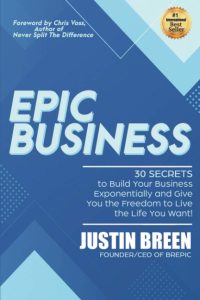
Well, great to have you on the show. Justin.
Yeah, I’d be curious to see what 3393 and I’m an 8671, what that leads to. I’ve always found that people that understand Kolbe and are in Strategic Coach or have been in it is always a different level of conversation. So I’m very excited about this.
Me too. First of all, we got to bring our listeners into our kind of secret code of what we’re talking about. So Kolbe is what we’re talking about. You’ve been assessed, I’ve been assessed. I’m a 3393, and you’re an 8671? What the heck does that mean, and what’s the relevance and significance of it?
Sure. I will try and simplify that as much as possible. One, because I’m guessing you’re a 100% multiplier and I’m a 100% simplifier. I’m guessing I could be wrong about that, but I love talking to multipliers because it’s all collaboration. In my opinion, based on my experience and talking to some of the top entrepreneurs in the world, Kolbe is the top test that I’ve ever taken in or out of school. It does not tell you your personality. It essentially tells you your brain strengths. And it’s divided into four categories. One is Fact Finder, and it’s one to 10. There are no bad scores, but ten is the highest. I’m an eight Fact Finder, you are three. So I do more of a deep dive on things than you do. Follow Thru is the next; I’m a six, which is insanely high for an entrepreneur, you are a three, which is very typical of the highest performing entrepreneurs in the world. You are a nine Quickstart, which is very typical for the highest performing entrepreneurs in the world. Because you’re just like, boom, boom, boom, boom, boom, boom. And I’m a seven, which is high but a little lower than most entrepreneurs. And then Implementor, Implementor is working with your hands or building something. You’re a three, which is low but not insanely low. I’m a one. I would be a negative 300 kajillion million Implementor if that number existed. I can barely install a light bulb. If you ask me to assemble something, I will run out of my house. Things that a monkey could do, that a child could do, that my two young sons can do in terms of building, I cannot do it. It horrifies me. So that’s the simplest way I can explain Kolbe. And when you understand someone’s Kolbe score, it’s just a different level of conversation because you understand how their brain works, not their personality, but how their brain works.
People are born with superpowers, but most people never discover them. Share on XFor me, if you were to put an IKEA desk or something in front of me that I would immediately hop on to taskrabbit.com and book TaskRabbit to come to do the installation for me.
That’s very interesting. Imagine that a million times worse. My wife, she’s a pediatrician, not an entrepreneur, but she’s a two Implementor. If there’s anything that we have to install, she hates doing it, but she’ll do it. I could do it, but it would be a nightmare for me. That’s why it was interesting to have her take the test because there was always this conflict when there was anything involving assembling or using our hands. Because we have no implementations.
Yeah, so in your company, you must have some amazing Implementors, perhaps some Integrators as well. An Integrator is actually from a different kind of system called an Entrepreneurial Operating System.
Yep, Gino Wickman.
Gino Wickman has been a guest on my other podcast.
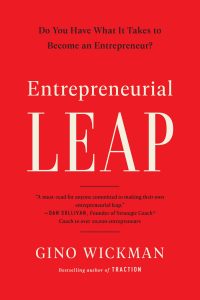
Gino endorsed my book. Also, I read Entrepreneurial Leap. I’m just starting to read Rocket Fuel because I’m the Visionary flying the plane up here. And I just need to find that Integrator because I’m not a manager. I am a leader. I am not a manager. And then the other book I’m reading is Who Not How, and I’m the person that needs to find the who to find all the other whos in terms of running a company because I’m incapable of doing that. But what’s interesting is that people with Implementor scores as low as mine, or futurists, we’re just futurists; things I was saying two or three years ago on a podcast are happening now. So I can see things for the next 5-10 years, I just can’t implement it or build it with my hands. And so finding that Integrator is important for sure.
You don’t have that person yet?
Yeah. So it’s been interesting, here’s the dovetail to that, most entrepreneurs are like you, they’re high Quickstart and very little Follow Thru. They’re all over the place, and so they must have that Integrator. I am a high Quickstart and high Follow Thru. So I just say it, do it, say it, do it, say it, do it. I can integrate very select things, and because I’m not a nine Quickstart, or even a 10. Like Dan Sullivan, I’m not completely all over the place, and I’m pretty focused. And then, as a journalist for 20 years, I wrote two to three stories on deadline every day for 20 years. So that processes your thinking. It’s like, “Here’s the story, here’s your content, get it done. Here it is, get it done. Here it is, get it done.” So I’ve just applied. I can integrate one process, which is what my company does very simply. And they just say it, do it, do it, say it, do it, just get results. But in terms of building an actual organization of employees, no, no, no. That would be like assembling something from IKEA for me. Impossible.
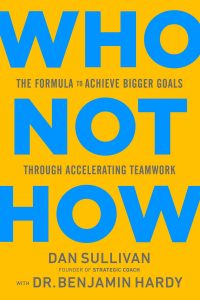
Okay, so you have a PR firm that helps folks get lots of great press. Are these individuals, or are they companies, or both? Who are you getting PR for, and what kinds of PR campaigns are you guys running?
Yep. So I started this company three and a half years ago with zero business background. I did not know what an LLC was, I didn’t know what a W-9 was. I didn’t know you had to pay taxes four times a year. Now I have a global company that works with the top mindsets in the world. I’m in Strategic Coach, Abundance 360, I’m on the board of Entrepreneurs’ Organization (EO), Chicago. How did that happen? Someone with zero business background, zero implementation skills, and I have a global company that performs at the highest level and works with the best people and then talks to people like you five to 10 times a day. How did that happen? Because I’m a hundred percent simplifier, and I’ve talked to so many of the top-performing entrepreneurs in the world since I started this three and a half years ago, I just realized it’s a very simple formula, very simple for creating a successful global company. So here it is, this is the entire formula. It’s you see a problem, you create a solution to the problem, problem solved, successful global company. So see your problem, create a solution, problem solve, successful global company. So that’s all I did in the PR space.
I was a journalist for 20 years and created my entire business model based on how PR firms annoyed me for 20 years. I saw a problem, created a solution, problem solved, successful global company. So since it solves the problem, I have clients around the world, any business size, from solopreneurs to companies as big as all state or the University of Illinois or Salvation Army, and any location, any vertical. It doesn’t matter because my company solves the problem, just like SEO, whatever, who cares what industry you’re in? It’s SEO. It solves the problem. And so the only people I work with on a global level have three attributes in their mindset because I’m 100% simplifier, and I see patterns. So these three attributes are Visionary, Abundance, Investment. So those people fit into two categories because these are the only people I talked to. So they’re either running high six-figure to 10-figure businesses, they see their families whenever they want to, and they do what they like to do and what they’re good at, or they’re going to be one of those people because they have that mindset. It eliminates everything else. And what I like talking to folks like you and people in Strategic Coach is that I can talk about things in Strategic Coach, which has changed my life in every way imaginable, but the number one thing is a unique ability. I focus 100%, not 99%, of my day on my unique ability. And that’s connecting people on a global level and getting people to his highest level. This is very easy for me. Very easy, and it’s not work at all. I work zero hours every week. It’s fun.
Yeah, because when it’s fun, it’s not work.
Because I saw the endorsements on your site, Jay Abraham and Tony Robbins, and all the great case studies. And it’s like, I can tell you have a passion for this.
I do.

You have the scientific Visionary brain, and you just combine that to create this joy and results for people. Like this is your superpower. People are born with superpowers, right? They’re born with this. 1.) Most people never discover it. They have it, but they don’t discover it. And then, 2.) if they don’t discover it, they don’t do anything about it. So I just did something about it because I have high Quickstart and high Follow Thru, I saw what I was good at and what I liked to do, and then I just eliminated everything else. I just do what I like to do and what I’m good at.
That’s great. You said PR firms annoyed you in different ways. Can you explain a bit more about that? Because our listeners are keen to hear what the big mistakes are that PR firms make and how they can avoid making those same mistakes either themselves when they’re pitching the press or through the PR firm that they’re using.
If I’m not exceptionally good at it or I don’t like to do it, I just outsource.
Right. Any high-level entrepreneur would never do this themselves. They know their superpowers. They are not doing this, so they would hire someone at the highest level like me that would do it. If I’m not exceptionally good at it or I don’t like to do it, I just outsource or I don’t do it. So doing it yourself, and that’s the type of thing that annoys journalists is like, who are these people bothering me? So the problem, solution, solve, successful global company. The problem is, as a journalist, you receive hundreds of useless press releases every single day from people you don’t know. Those press releases talk about what you do, not who you are. Guess what, nobody cares about what you do. They care about who you are, they will care about what you do. So I’ve created a successful global company by seeing that problem and creating a solution to it.
My company’s process is on my website. There are no hidden tricks, unlike most PR firms, you have no idea what they do except annoy journalists. The company’s entire process is there. It comes from the link on the client’s website under news or blog. It looked like a story you see in the Milwaukee Journal Sentinel, or the LA Times or whatever, take that link, pitch to media all over the world, media is interested, put them in touch with the client, problem solved. It just solves the problem. Again, any high-level entrepreneur would never do this themselves unless they’re like me and they’re in this space. But I don’t care that my process is out there because there’s no such thing as competition to me. It’s all collaboration. Competition doesn’t exist to me, even though I just said it. But it’s all collaboration. And because I only work with people with abundance, investment, visionary mindset, they’re all like that as well. There’s no cost scarcity. They don’t ask what you cost or charge. They say, “What does an investment with you look like?” They say, “How can I help you?” Not, “How can I destroy your company?” So it just eliminates all of that thinking, and it just grows and grows.
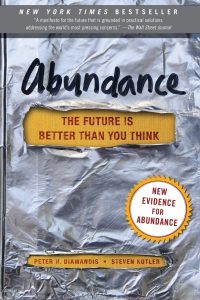
So that abundance mindset that you just alluded to, that sounds like something you might have picked up or worked on through Abundance 360 because that’s a great group that focuses on that abundance mindset, and exponential improvements, exponential kind of accelerating change that happens due to technology.
Yeah, it’s a really good book.
Bold is a great book. So what’s your MTP? What’s your Massive Transformational Purpose?
That’s a good question. As background, I joined Abundance 360, maybe three months ago, after being on a podcast like this, who the host was in YPO and Strategic Coach, and I just kept saying, “Abundance mentality is the only mentality,” and he’s like, “Oh, you should join Abundance 360,” which he is also, and I’m like, “Okay,” because I have high Quickstart, high Follow Thru.
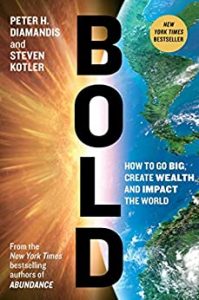
So you just did it like, “Boom! Done.”
I don’t understand why people wouldn’t do that. Most folks say it but they don’t do it. I just say it and then do it. And there’s a very big difference. Even though I’m talking a lot in this interview, I don’t talk that much outside of these things, I just get stuff done and just action, all results. Just get results because people at the highest level just want results. I’m working on my moonshot now. Essentially, my company is just this giant incubator of geniuses around the world. It’s not a PR firm, and it’s tens of thousands of people like you on a global level. We’re constantly introducing each other. So I haven’t done outbound sales or funnels, or any of those. I haven’t done any of that in years, because we work in partnership with people at this level, it leads to this, you do this with this type of person leads to this. So I don’t sell anything. I don’t even talk about what I do unless someone asks. And so the moonshot is just a thousand times in that. And there’s another good book called The Compound Effect by Darren Hardy. And it’s really good because it talks about when you make these small incremental gains, and then all of a sudden, you hit the tipping point, and then exponential growth. So that’s what my company is, it’s exponential growth. You just keep the momentum going, and then it just grows upon itself. It never stops growing. Because I only work with those people with those three attributes: they want it to grow, they don’t want to hurt, and they want to help.
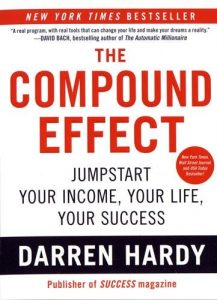
How long have you been in Strategic Coach?
Yeah, so the first year and a half of my company, I was like, “What’s wrong with me? I’m an alien.” I was going to these lower-level networking groups, I’m like, these people don’t understand me, and I don’t understand them. Like, I don’t need a painter.
Are you talking like BNI?
I went to one BNI meeting, and a lot of people get a lot of value from BNI, and that’s fine. That is not my tribe. And that’s fine. Find your tribe, that’s the key. So I’ve had mentors since the start of my business, and 82% of entrepreneurs don’t when they start, which is horrifying. But I’ve had a lot. In one of the smaller groups that I did go to, I talked to someone, and I was talking like this. And they’re like, “Oh, you need to meet my boss.” And so all I do all day is talk to the heads of the leaders because I’m a leader. But so the boss I talked to was Gary Klaben, who’s a coach and Strategic Coach. So Gary and I would meet for lunch, he lives by me, and he has an office by me. He told me about Kolbe before I joined the program. And he’s like, “Your brain is Strategic Coach. Your brain isn’t BNI.” So I’m like, “Okay.” So I joined it. And I’m coming up on the second anniversary in Strategic Coach. And so it’s interesting, because if I could only do one of these groups, and I’m in a lot, and they’re really good groups, but if I could only do one, it would be Strategic Coach. I mean, 90% of the way, I live my life and spend time with my family and raise my rates exponentially and focus on my unique ability, and only hanging out with people I like hanging out with. That’s Dan. I mean, he’s my hero. He’s a gift. He’s a gift to the world. And I wish more people knew about him, but the right people know about him for sure.
Yeah. I’ve been trying to get him on my podcast for several years now. We had a date, and then he had to move it, or his podcast manager had to move it.
Have you been on his Multiplier Mindset?
I have not.
I would love to hear you on that. That’s my favorite podcast for sure. I listened to that probably three or four times a week. I mean, it’s just people like you at the highest level. I’m an eight Fact Finder, right? So my brain is a sponge. You around the A360 call, when they had the geneticists from Harvard, they were talking about you’re going to be living to 200-250 years old pretty soon. And I was on a podcast with another genius like you, and he was like, “Why would you want to live that long?” and I’m like, “If I get to have conversations like this five to 10 times a day, yeah, of course, I would want to live that long.” Because I’m endlessly excited by that, I’m endlessly fascinated by learning cool new things and talking to amazing people who are the .1% of mindsets, but they’re the ones creating the businesses and brands that are employing the billions of people.
Yeah, I’m a lifelong learner myself. Yes. I love it.
People care about who you are, not what you do. Share on XThat’s interesting because you’re a three Fact Finder but you’re a learner. So you don’t need facts, per se, but you just love to learn. I think I was a guest in your Strategic Coach group or something, or maybe we’re both guests. And I’m like, “Oh, man. You get a very high level.” And so my brain, because I talked to so many cool people like you, it’s just drawn to that, it’s a magnet. And then again, I saw your Kolbe score, and you’re a 9 Quickstart. I love talking to 9 Quickstarts and 8 Quickstarts. And I’ve only known three 10 Quickstarts. Dan is one, Nick Nanton, who did Dan’s documentary is a 10, and then there’s another guy who does EOS, and he’s a 10 Quickstart and 2 Follow Thru. I have no idea how he does that. Like how he does EOS with that score, but he can do it. Do you know any other 10 Quickstarts?
I don’t. So we got to explain for our listeners this thing about simplifier versus multiplier because they’re probably not familiar with that terminology from Strategic Coach. So could you elaborate?
I like working with multipliers because I don’t want someone to simplify my simplification.
Yes, I will land the plane. But that’s okay because it’s important. So I’m a simplifier. Dan Sullivan, he’s a simplifier. You can take all this complex stuff, and then I can simplify it. My firm can simplify it into a 500, maybe a 400-word story, that the media wants to do and the general public cares about. So I can talk to someone for an hour, 55 minutes of those are useless to what anyone cares about. But if someone says something really interesting, or what makes it newsworthy, I’ll just go bing. And then I can just simplify that. And then I can talk to people like you, thousands of them. And I can simplify it into a pattern, like how to grow a successful company. Why only work with people with these three types of attributes and their mindsets. Like I can just do that.
Multipliers, there’s a lot of folks in marketing that are multipliers, they can put something on 15 different revenue channels. They can take a simple idea and just blow it up to the world. They can just do that. Even though my company gets clients and media at a very high level, I am a simplifier at my core. And that’s why I like working with multipliers because I don’t want someone to simplify my simplification. I want them to multiply it, and multipliers are all over the place. They want simplification, they want their message very simplified. And then they can take that and multiply that to the world.
Yeah. So a multiplier would be somebody who can, let’s say, look at your YouTube channel, and see all the different opportunities that would 10x or 100x your view count, your watch time, your reach. And then a simplifier would be able to see all the crazy disparate ways that you are spreading yourself too thin across different channels and say, “Why don’t you focus on these three things?”

That’s exactly it. I simplified my entire life through unique abilities. And what you said, it’s very powerful. So I want to make sure I say this right. So for those who are not in Strategic Coach, or don’t or can’t invest that type of investment, what you said is very profound, because you can just write down 30 things or 17 things or whatever all these things that you do every day, no matter how tiny the task is, you just cross off. The three that are left are things that you like to do and good at, and then you come up with a mission statement from that. And then there’s your unique ability. It’s what you like to do and what you’re good at. There’s your simplification. But Dan has a good saying because if you’re a simplifier and a multiplier, you’re a complicator. So complicators aren’t good. They just complicate things.
That’s funny. Do you have a mission statement for your company?
To connect every visionary, abundance, investment mindset person, and share their stories with the world.
Yes. To connect every visionary, abundance, investment mindset person, and share their stories with the world. That’s it. And that’s what I do all day, and I will continue to do that. And it’ll just keep growing. It just keeps growing.
Give us an example of a client where you took somebody that kind of visionary, abundance, investment mindset, and people and technologies, growth and all that, and you turned them into the next big thing as far as the media is concerned.
I’m the outlier of outliers even in journalism. I found people like me, who are usually always aliens within their families, aliens within their community, aliens with their vertical, nobody understands them. So that’s what my company is, a constant quest to find people like me. And it just so happens those the ones that are all these visionaries, they are running all these great companies. So podcasts are replacing mainstream media in terms of relevance and importance, and there are three reasons why. Three reasons because I simplify and see patterns. 1.) The host is an entrepreneur, not a journalist. So they can ask questions that a regular journalist would never ask. 2.) You can do a deep dive on someone 30 minutes, 45 minutes, an hour. So it’s not a drive-by five-minute radio interview or a three-minute TV interview. So you get to know the person. And then, 3.) the audience, not as large quantity-wise, most of the time, but quality-wise, far more qualified audience.
There's a straightforward formula for creating success in a global company. It's you see a problem; you create a solution to the problem, problem solved. Share on XMy clients are in traditional mainstream media, like TV, radio, and newspapers and magazines. But now I’m seeing because I’m a simplifier. And I see how this is, and I’ve seen it from a first-hand perspective, is that being on podcasts is what’s creating commerce because podcasts are a transactional and transformational platform for commerce for entrepreneurs. That’s what they are because of those three reasons that I just said so—clients from one of the top paycheck companies in the world, which is based in California. Two of Africa’s top speaking groups that went global because of COVID didn’t allow speaking anymore. Now they wanted to go global and create virtual platforms for a solopreneur in a speaker whose dad threw a crumpled-up $100 bill at him when he was 11 and said, “Hey, you and your mom are going to need this when you’re homeless on the streets.” And he turned that into rocket fuel, which he calls his new book Rocket Fuel, to a promotional marketing company that makes gifts for folks. And they’re helping that with COVID. So all verticals, all sizes, and then they’re seeing huge results from being on these podcasts because of those three reasons that I mentioned, and essentially creating a giant network of commerce with these entrepreneurs.
Is there an example that you could give of a particular media placement or podcast interview or something that was particularly pivotal to a client of yours?
So you might be a simplifier then.
I haven’t had the simplifier multiplier workshop yet. So I would not be sure which one I am until I go through that.
So here’s why it’s tough for that to answer because, on average, it’s not one. It’s cumulative. It’s a compound effect. That’s what most people think they’re on one thing and creates all this stuff. It’s a compound. On average, my clients have more longer-term clients. So it’s six months or 12 months. The other half are projects. Those are book authors, and smaller startups, those type of things. They all have the same mindset but different budgets to invest in. But at the project level, they’re in at least 15 media outlets for each story that my firm does. So that’s all of these before. It’s the cumulative effect of that.
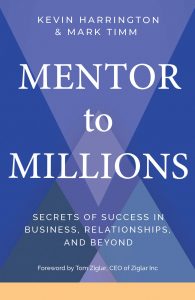
Can you give an example? Like was there a particular book tour, kind of podcast tour that involved dozens of interviews, but that moved the needle? Like for example, Kevin Harrington and Mark Timm were on this podcast recently as part of a book launch podcast tour for the Mentor to Millions book. And I remember Mark was the one who mentioned that they had been on 200 podcasts in the last two months. And I’m like, “Holy cow. That’s insane.” For somebody who’s as well known and busy and got his hands in so many different businesses as Kevin Harrington, the original shark from Shark Tank, to invest that kind of time and being on to that many podcasts. Though he wasn’t on all 200. Mark did all 200, and Kevin did many of those. But still, even if it was 100, that is a huge time investment.
It’s an investment. And it’s a good investment. Since my book has come out, I’ve been on well over 100. And again, I’ve been on five podcasts where the host became my company’s client. I guess that’s reason number four. I’ve had clients who are solopreneurs, CPAs gain $5,000 in new business every week, just by being in black enterprise or being on TV or these podcasts. That’s an ROI scientific question. And my clients don’t ask about ROI scientific things. They just know being in mainstream media and being on podcasts gets them in front of the right eyeballs and stuff. It’s just not an ROI mathematical answer to that. I think that’s why I’m having a hard time answering it because I’m guessing I could be wrong, but in SEO or other types of marketing, it’s like you do this, it has a 2% click-through rate, or it goes up this much. That’s not how PR works. It’s just more getting validity and credibility. And so what I hear over and over is not, “Hey, I need this to sell a thousand or a million copies of my book.” It’s, “Hey, I need to create validity and credibility for my brand.” That’s what I hear more than anything that we’re tired of being the best secret out there. We have this great platform, a great book, or we’re running across the United States, and we want to be in the media to create validity and credibility for that.
Yeah. Have you gotten any of your clients, particularly, let’s say, author clients, on to TEDx stages?
So that’s a really interesting question. I have, but that’s a byproduct of all of this. That’s an interesting question because my company is a giant incubator for geniuses around the world. Some of those geniuses run TEDx talks. So I introduce my clients to those folks. And then oh, voila, and now they’re TEDx speakers. So that’s a byproduct of being in this network. It’s not only in the media but again, because podcast hosts are entrepreneurs, it’s getting into that connectivity network and that network of commerce at the highest level.
By the way, the number of times you’ve talked about networks and connectivity and stuff. I think you should be in Genius Network.

Right. And so I’m sure I will, because I listened to Joe and Dan talk this morning, and I don’t believe in anything random. I don’t know what the title of it was, but it was Dan’s talk at one of Joe’s Genius Network events. And, again, that’s how I joined Abundance 360, and a Strategic Coach guy was saying, “Hey, you need to be in Abundance 360.” And so eventually, 100% I will be in that, there’s no doubt. It’s just making sure that the ones I am in, I invest the most amount of time in it as possible. And then when something else falls away, that will probably be the next one I enjoy.
Yeah. Okay. So I highly recommend you do it sooner rather than later. But I’ll leave it to you and divine timing to figure that out.
Yeah. I listened to Joe Polish today, and I love Marketing E.L.F. Easy, Lucrative, and Fun. I mean, that’s what my company is. It’s E.L.F. most of the time. So the seeds are planted. Thanks for saying that.
E.L.F. (Easy, Lucrative, and Fun)
And for the listeners who are not familiar with Joe Polish. First of all, check out the interview I did with Joe on this podcast. It’s gonna be well worth your time. And so the opposite of an E.L.F. business, Easy, Lucrative, and Fun business is a H.A.L.F. business, and you know what that stands for, right?
So here’s why I don’t, and I’ve listened to him say “H.A.L.F.” as much as I’ve heard him say “E.L.F.”, but because I’m an abundance visionary, I just ignore it. I don’t know what it is.
Well, I have a mind like a steel trap. So I remember all this stuff; Hard, Annoying, Lame, and Frustrating.
Right. That’s the opposite of my business. Mine is just all E.L.F.
Yeah. Life’s too short to have a H.A.L.F. business, or to have anything other than an E.L.F. business. Like, why would you do that?
That’s what I mean. Why would you not want to work with the top mindsets in the world? Why would you not want to work with the most innovative things? Why would you not want to be in a room with the coolest people? But again, most people are not like that. They’re not like that. But again, I’m a synthesizer, a simplifier. And so this is all it is. This is the whole thing. It’s the right mindset that leads to the right network, which creates the right opportunities. All this other stuff, landing the plane. That’s why I get annoyed with landing the plane questions because I don’t want to land the plane. I just know that the right mindset leads to the right network, which creates the right opportunities. That’s all it is.
It's all about getting results. People at the highest level just want results. Share on XOne thing I’ve noticed about our conversation is that you like the labels that you picked up from Strategic Coach and Abundance 360, and EOS, and so forth. And for somebody who’s an outsider, they might think that it might sound a bit arrogant. Like, “I’m a Synthesizer. I’m a Visionary.” And I just want to clarify for the listener who might think that, that a Visionary is not a term that’s arrogant if you’re referring to the label of Visionary from EOS Entrepreneurial Operating System, which is the person who heads the company, and the person who directly reports to the Visionary is the Integrator. So if you’re talking about, “Hey, I’m an Integrator. I’m an Integrator. I’m an Integrator.” And this is somebody that you’re talking to who is an Integrator in terms of EOS terminology, that is a very specific thing with a certain set of skills and abilities. And they relish the fact that they have identified that unique ability, and they’re focused on it. So I just want to make that clarification for those folks who might think that it sounds arrogant.
Yeah. Okay. So let me help with that. So this is one of the chapters in my book.
Which chapter is that?
Confidence is a great thing and an awesome attractor to other confident people.
Twenty-seven, confidence is a great thing and an awesome attractor to other confident people. Okay, so here are the two words: confidence, arrogance. There’s a huge life-changing difference. And I don’t care, per se, but I’m just telling you I did a big article about how I built a global company. And then I talked about this in that article. Arrogant people think they’re great at everything. They think they’re great at everything, I am terrible at almost everything. I mean, I can barely install a light bulb. An arrogant person thinks they can be great at everything or thinks they are great at everything. Confident people know their zones of genius superpowers and, more importantly, know their limitations. And then that’s why for the most part, if the Integrator is a terrible Visionary, they need a Visionary. A Visionary is terrible, they need an Integrator. And so it’s all collaborative. People who think this conversation is arrogant, don’t know the difference between confidence and arrogance. Because I’ll tell you, a lot of the people that think I come off as arrogant are lawyers, who are lawyers as opposed to an entrepreneur who happens to be a lawyer. Very big difference. They think it comes off as arrogant. It’s the exact opposite of arrogance.
That’s a great clarification. Speaking of confidence, I remember one thing that landed for me when I heard it from Dan Sullivan is that the entrepreneur’s number one job is to protect their confidence.
That’s my cover photo on my Facebook page. Because I know connecting people on a global level and getting people news at the highest level, there are very few people in the world that are better at it than I am. I don’t think that I know that. And I also know that I am useless besides that. And so I don’t do anything that I’m useless at because why would I do that?
So many people work on shoring up their weaknesses instead of just staying with their strengths. I just find it bizarre.
That’s who not how. You just find the who to do all this stuff. You don’t figure out how to do it. I don’t know how to do anything other than the two things I’m good at. I’m not gonna do it. I just find the who that can do it.
It's the amazing people who are the .1% of mindsets who create the businesses and brands that are employing billions of people. Share on XYeah. So you just held up the Who Not How book. How far into the book are you?
Let’s see. So I never read a full book. I just scan it.
Yeah, me neither. Rarely, once in a while, I’ll read a full book.
So the best part is and one of my clients/best friends/someone who’s also in Strategic Coach, and he’s a 5582. He sent me this passage, “Unless you’re brilliant at finding whos, you should probably find who to find your whos.” That’s the part of the book that was like, “Oh, my god.” So you asked me about my moonshot. I’m trying to find my Babs. I’m just trying to find the Babs. Because Babs does all this stuff in Strategic Coach, she can build the company or find the Integrators. Dan’s not going to be able to do that. So he doesn’t do that.
Yeah. So Babs is Dan’s wife. And Dan has said so many times that if it weren’t for Babs, he’d be a high-performing drunk.
Unless you’re brilliant at finding whos, you should probably find who to find your whos.
Right. And so my wife–this is the same but different. My wife’s a pediatrician, not an entrepreneur. She’s the sweetest, kindest, most loving, and empathetic. At StrengthsFinder, I’m dead less than empathy. But that’s interesting because for the people who think like I do, and or people like you at the highest level, I’m extremely empathetic, and I care deeply for them. And she’s a successful doctor. So she’s given me this runway. She’s given me this runway to fly the plane. Now because my company has been successful, she’s gone from full-time to part-time, she spends more time with our young sons. She’s my Babs in a way, but she’s not going to build a company. Her company is my family, like this house and raising children and being a human. So she’s made me barely a human, she’s maybe just barely human enough, and then I’ve made her more of a risk-taker. So it’s been a nice little rubbing off on each other kind of thing.
Yeah. Sounds like you got a wonderful family. I would love to know what your top five StrengthsFinder strengths are.
Yeah. Hold on. I’ll tell you right now.
Oh, you just don’t have it memorized?
Well, because I always look at all 34. So here, you’re gonna love this. And I’m guessing you have a similar five. So one is Activator, two is Maximizer, three is Achiever, four is Competition, and five is Responsibility. So if that’s not the top five of an entrepreneur, I don’t know what are.
Well, you know what, I don’t have any of those in my top five.
I am shocked.
Okay, so here’s my top five; Futuristic, Input.
Input?
The right mindset creates the right network and creates the right opportunities.
Input, like my brain, is a file cabinet, the size of Google. Like, I could just rattle off all these different things.
Your scientific brain. I’m 25 in Input and 20 in Futuristic.
Yeah. So I have a master’s in biochemistry. I was going for a Ph.D., and I dropped out to start a company. So Input, then Ideation, Strategic, and then Learner.
So you have a science brain, and you brought that into the future with an entrepreneur’s brain. That’s super interesting. I mean, that’s what you did. So most people with your brain just stay in the ivory tower higher and never leave. They never leave the ivory tower, and you left the ivory tower.
Well, not only did I leave the ivory tower, I went over into the whole kind of personal development, transformative, ethereal sort of higher power, higher purpose, sort of side of it too. So I had a big transformation in India where I connected with the Divine, the Creator, and I was blessed by a monk. And when he touched my head, I had this, like a psychedelic experience. So it’s completely transformed from that back in 2012. And then all these miracles started happening in my life. And it’s like, you can order up miracles. We all can, and we just are choosing to tap ourselves out or like to disconnect ourselves from all that abundance. It’s crazy.
The right mindset creates the right network and creates the right opportunities when you open yourself. I don’t believe in anything random. We were just meant to have this conversation. You were meant to tell me to join Genius Network. That’s not read. I just don’t believe in randomness. And so I think why I like you so much is we’re total collaborators, we’re different, yet there’s no competition. It’s all collaboration.
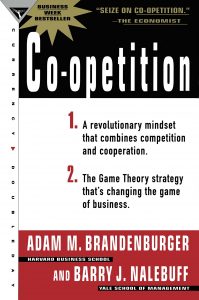
Yeah. Whenever somebody thinks that their competitors, really it’s cooperators like it’s co-opetition, that’s the title of a book, Co-Opetition, right? You’re always looking for one plus one equals three, or seven or 51. Like the idea of a Zero-sum game. Like, that doesn’t exist.
So it’s very interesting because someone asked me, they’re like, “Who do you work with?” I go, “I work with the top .1% of mindsets because those are the ones that change the world.” By working with people like you, you’re helping everybody, for the most part, you’re just choosing to spend your time with this .1%, which makes sense because those are the ones that create the companies and the ideas. We were talking about Integrators before. Thank God, there are more Integrators than Visionaries because nothing would get done. Nothing would get done if everyone was a Visionary.
Well, you know what, it’s funny though, apparently, according to Gino Wickman, 1% of people are Integrators or have that capability.
True Integrators?
Yeah, to be a true Integrator in his definition from EOS; 1%. Now entrepreneurs 5%. So the other 95% of people are going to fail terribly at entrepreneurship because they’re not wired for it or they’re under this entrepreneurial delusion, and they will eventually fail.
And so here’s the real entrepreneur life. Again, because I just see patterns, I simplify, so I have not met one, and if you know someone who doesn’t fall into this, please introduce me to them because I’d love to meet them. And if it’s you, please tell me. So I have not met one of the highest performing entrepreneurs in the world that have not overcome at least one of the following four things, at least one, most of them are two or three, some are all four. All four are insanely successful. But here it is; one, bankruptcy or potential bankruptcy, two, depression, three, the highest level of anxiety you can imagine, and four likely and are possible traumatic experiences as a child or young adult. So I haven’t met one entrepreneur, at a high-level one that hasn’t overcome those, not only has overcome them but is used as fuel to propel them and learn from those experiences and then just 10x that experience into positivity and abundance. So if you know someone that has not overcome at least one of those four things, please introduce me because I haven’t met one yet.
I just interviewed Suzy Batiz, who created Poopourri, the 9-figure brand that she invented out of her home, and she was twice bankrupt. She was a victim of domestic violence, and I do believe she had childhood traumas. Like she had probably all four. I didn’t have all four. I’ve never been bankrupt.
Me neither. The other three but not bankrupt. So we’re the same. Do you know Mike Malatesta, by the way?
No, I don’t.
I’ll introduce you to him.
Okay, awesome.
You’ll see. He’s also in Strategic Coach.
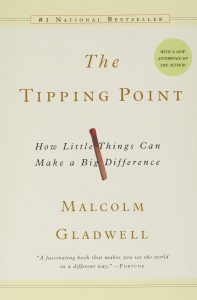
You are a super-connector. And so I appreciate any connections you make, because the book The Tipping Point, which I love, I did read that one cover to cover by Malcolm Gladwell. It talks about three archetypes of people; Maven, Connector, and Salesperson. I’m curious to hear your take on that. Like, I consider myself a connector as well, but I also consider myself a Maven. So I’m not sure.
Connector and I don’t sell anything.
I mean, technically, I sell because I’m the only salesperson in my company. But it doesn’t light me up. I mean, helping people lights me up. And as long as I’m helping people, and it just happens to be an exchange of value in terms of a commercial transaction, great, but I’ve donated and volunteered plenty to worthy organizations who couldn’t afford me. And that lights me up, just making a difference for people that are making a difference for other people.
So the email I just got today is, “Hey, Justin, would you consider taking me on as a client? And if so, here’s the motivation behind me reaching out.” So people reach out to me. If they ask what I do, I tell them. If not, it’s just a great conversation like this. And you know right away when someone’s the real deal, and you know when someone isn’t. That’s it.
So we’re at the end here. Where should we send our listeners to if they wanted to work with you or with your PR firm if they want to follow you and learn from you? Where should we send them?
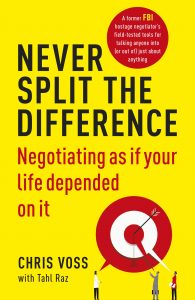
Yeah, sure. So here’s the book, which it’s always funny because I never talked about the book. Chris Voss wrote the foreword, so anybody who knows anything knows Chris Voss and Never Split the Difference.
Chris Voss is amazing. That’s one of my favorite business books. And Chris has been a guest on the podcast.
Right. And Chris’ son, Brandon, was in my first Strategic Coach group. So there you go. And Brandon was the first one who called me the connector to answer your other question. So, to answer your question, Justin Breen on LinkedIn I just passed 24,000 followers there. Most of them are high-level entrepreneurs and journalists. I use LinkedIn as a commercial for others. And then the book is called Epic Business. So thank you.
Yeah. Awesome. Very good. This has been a lot of fun, and a lot of wisdom dropped much of it from other thought leaders, or should I say, result leaders.
Ooh, that’s good. I like that.
Well, that’s from Joe Polish. I’m not claiming credit for that one. Well, thank you so much. This has just been a lot of fun. And Justin, have a great rest of your week. Listeners, please take some of what you’ve learned and make a difference out there in the world. This isn’t just passive learning and entertainment. This is about making a difference.
Yeah, this is billions of dollars in financial and life advice here for sure, if not trillions, probably trillions.
Well, it’s priceless.
Priceless. Thank you. That’s even better. I knew this would be great, and thanks for making it great. I appreciate it.
Thank you, Justin.
Important Links
- LinkedIn – Justin Breen
- Twitter – Justin Breen
- Facebook – Justin Breen
- Instagram – Justin Breen
- BrEpic
- Epic Business
- Entrepreneurial Leap
- Rocket Fuel
- Who Not How
- Abundance
- Bold
- The Compound Effect
- Mentor to Millions
- Co-Opetition
- The Tipping Point
- Never Split the Difference
- Kevin Harrington and Mark Timm – previous episode
- Joe Polish – previous episode
- Chris Voss – previous episode
- Gino Wickman – GYO previous episode
- Suzy Batiz – GYO previous episode
- Strategic Coach
- Entrepreneurs’ Organization
- Abundance 360
- Kolbe
- Taskrabbit.com
- Entrepreneurial Operating System
- Jay Abraham
- Tony Robbins
- Gary Klaben
- Multiplier Mindset
- Nick Nanton
- Genius Network
- Joe Polish
- StrengthsFinder
- Poopourri
- Mike Malatesta
Your Checklist of Actions to Take










About Justin Breen
 Justin Breen is the Founder/CEO of BrEpic and the author of the No. 1 International Best Selling Book, Epic Business. He has a global network of exceptional entrepreneurs and is an extremely active member of Strategic Coach, Entrepreneurs’ Organization and Abundance 360.
Justin Breen is the Founder/CEO of BrEpic and the author of the No. 1 International Best Selling Book, Epic Business. He has a global network of exceptional entrepreneurs and is an extremely active member of Strategic Coach, Entrepreneurs’ Organization and Abundance 360.







Leave a Reply